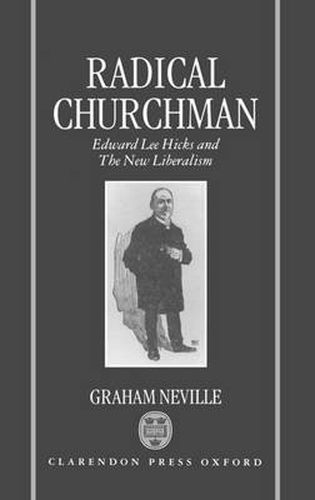Readings Newsletter
Become a Readings Member to make your shopping experience even easier.
Sign in or sign up for free!
You’re not far away from qualifying for FREE standard shipping within Australia
You’ve qualified for FREE standard shipping within Australia
The cart is loading…






Historians of the Christian Social movement in the Church of England during the nineteenth and early twentieth centuries have paid little attention to its relation to the Liberal Party. But from about 1886 to 1918 there were some socially concerned churchmen who firmly supported the Liberal Party in its new role as an agency of social reform and tried to exercise influence as a group, taking Henry Scott Holland as leader and inspirer. Edward Lee Hicks, who succeeded Edward King as bishop of Lincoln in 1910, was a distinctive churchman associated with this group. He was an outstanding classical scholar who combined a long pastoral experience with active support of movements for temperance reform, improved housing, women’s education and enfranchisement, and international peace. This study shows how he developed these social concerns under the influence of such friends as John Ruskin and C. P. Scott, and how he was drawn from his radical liberalism to the support of the incipient Labour Party without becoming a theoretical socialist.
$9.00 standard shipping within Australia
FREE standard shipping within Australia for orders over $100.00
Express & International shipping calculated at checkout
Historians of the Christian Social movement in the Church of England during the nineteenth and early twentieth centuries have paid little attention to its relation to the Liberal Party. But from about 1886 to 1918 there were some socially concerned churchmen who firmly supported the Liberal Party in its new role as an agency of social reform and tried to exercise influence as a group, taking Henry Scott Holland as leader and inspirer. Edward Lee Hicks, who succeeded Edward King as bishop of Lincoln in 1910, was a distinctive churchman associated with this group. He was an outstanding classical scholar who combined a long pastoral experience with active support of movements for temperance reform, improved housing, women’s education and enfranchisement, and international peace. This study shows how he developed these social concerns under the influence of such friends as John Ruskin and C. P. Scott, and how he was drawn from his radical liberalism to the support of the incipient Labour Party without becoming a theoretical socialist.